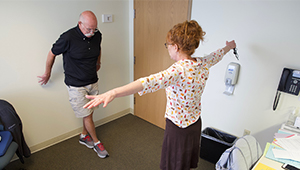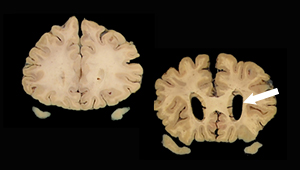How to lower your risk of dementia

It’s never too late (or too soon) to take preventive steps. And, with a new grant, Kaiser Permanente scientists are looking for more ways to support healthy aging.
Dementia and many other medical conditions associated with memory loss, including Alzheimer’s disease, can take years — even decades — to develop. While symptoms and onset don’t typically occur until later in life, you can lower your risk of dementia by making a few lifestyle changes at any age.
A long-running joint study between the Kaiser Permanente Washington Health Research Institute and the University of Washington called ACT, or Adult Changes in Thought, focuses on finding ways to delay or prevent dementia and declines in memory. A new 5-year, $55.6 million grant from the National Institute on Aging to further the ACT study will include the addition of a third major partner, the University of California, San Diego.
On the heels of this news, Eric Larson, MD, the study’s founding principal investigator, outlined a few steps he recommends taking to help lower your risk of developing dementia:
Stay on your toes
Increasing your physical activity is among the most important steps to take, according to Dr. Larson. That doesn’t mean you have to go from being a couch potato to running a marathon — even a modest amount of gentle exercise, such as a 15-minute walk, 3 times a week, can benefit your health. It also keeps your blood pressure in check, which is helpful because high blood pressure is a risk factor for dementia.
Dr. Larson believes that exercise may improve brain function by protecting blood flow to areas of the brain used for memory.
“Earlier research has shown that poor blood flow can damage these parts of the brain,” he said. “So, one theory is that exercise may prevent damage and might even help repair these areas by increasing blood flow.”
Watch what you eat
The risk of dementia is tied to higher-than-average blood sugar levels, even among people who don’t have diabetes. Eating more vegetables, fruits, and whole grains — and cutting back on highly refined grains, such as white bread or white rice, and reducing high-sugar beverages — can help keep blood sugar levels in check.
Take time to socialize and stay connected
As we age, it can be easy to retreat into isolation. The COVID-19 pandemic hasn’t helped, as many people avoid social interactions to steer clear of the virus. But, continuing to talk to loved ones or getting together to participate in engaging activities helps boost your brain. Putting together puzzles, playing virtual card games, reading aloud to each other, and sharing life experiences can make a difference.
Keep an eye on your meds
One group of medications — anticholinergic drugs, including the common antihistamines found in sleep aids and nonprescription allergy drugs such as Benadryl — is linked to a higher risk of developing dementia. This increased risk may not be reversible even years after people stop taking a drug. In the expanded ACT study, work is being done to find an explanation for why these drugs may have this impact.
“Right now, we know there are a lot of things we can do to reduce the risk of dementia and cognitive decline as we age,” Dr. Larson said. “These include getting regular exercise, maintaining social engagement, eating a healthy diet, being mindful of medications that might affect cognition, correcting or minimizing issues related to hearing and vision, and attending to blood pressure control and other cardiovascular risk factors.”
Learn more about dementia and how the ACT study, bolstered by new funding, is working to discover how people can age in the healthiest possible ways.
This story was originally published on MyKP.
Live Healthy: Top Topics
healthy findings blog

Preventing dementia: Effects of hypertension drugs
ACT studies find medications to treat high blood pressure may differ in their impact on dementia risk, writes Dr. Eric B. Larson.
New funding

Grant of over $55M to boost Alzheimer’s, dementia study
Kaiser Permanente Washington will co-lead an expanded ACT Program to better understand the aging brain.
Research

Study evaluates biomarker criteria for Alzheimer’s risk
One-third of people classified as ‘highest risk’ may not develop Alzheimer’s disease, study suggests


